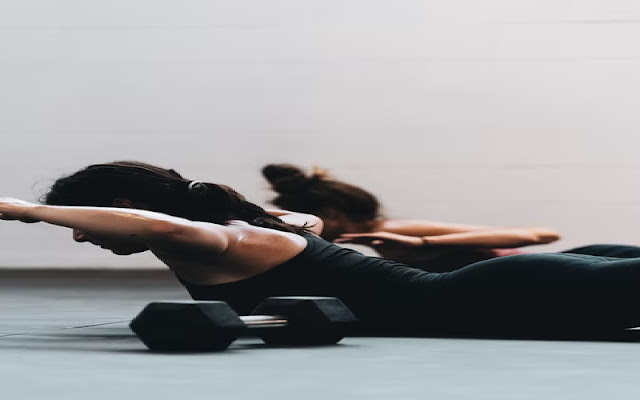Featured
- Get link
- X
- Other Apps
HOW TO PROPERLY LIFT B STANCE RDL IN B POSITION
Introduction

A. Explanation of B Stance RDL
1. Definition of B Stance RDL (Romanian Deadlift)
2. Mention its use in strength training and improving
posterior chain muscles.
B. Importance of Proper Technique
1. Emphasize the significance of correct form for injury
prevention.
2. Mention potential benefits like increased strength and
muscle development.
C. Safety Considerations
1. Highlight the importance of safety in weightlifting
exercises.
2. Mention that this guide aims to ensure safe and effective
execution.
B. Importance of Proper Technique
Injury Prevention
a. Proper technique minimizes the risk of strains, sprains,
and muscle imbalances.
b. Emphasize the importance of protecting the lower back,
knees, and hamstrings.
Muscle Activation
a. Correct form ensures that the targeted muscles are
engaged optimally.
b. Mention the focus on the hamstrings, glutes, and lower
back in the B Stance RDL.
Long-Term Progress
a. Highlight how consistent use of proper technique leads to
continuous improvement.
b. Mention that it allows for gradual weight progression
without injury setbacks.
Efficient Workouts
a. Emphasize that proper form maximizes the effectiveness of
each repetition.
b. Mention that this results in better overall workout outcomes and time efficiency.
C. Safety Considerations
Proper Warm-up
a. Stress the importance of warming up adequately before
attempting the B Stance RDL.
b. Include dynamic stretches and mobility exercises to
prepare the muscles and joints.
Appropriate Equipment
a. Discuss the need for the right equipment, such as a
barbell or dumbbell.
b. Mention the importance of wearing suitable footwear that
provides stability.
c. Note that using a lifting belt can be optional but may
provide added support.
Knowledge and Skill
a. Emphasize the need to understand the exercise and its
mechanics.
b. Mention that beginners should seek guidance from a
qualified trainer.
Progression and Overload
a. Encourage a gradual increase in weight and intensity to
avoid overloading.
b. Remind individuals to respect their current fitness
level.
Listen to Your Body
a. Highlight the importance of paying attention to any
discomfort or pain.
b. Stress that it's essential to stop immediately if there's
any sign of injury.
Spotter or Trainer
a. Suggest that beginners or those unfamiliar with the
exercise should have a spotter.
b. Mention that working with a certified trainer can provide
expert guidance and safety.
Recovery and Rest
a. Stress the significance of rest days in between workouts.
b. Encourage individuals to prioritize recovery for muscle
repair and growth.
Medical Considerations
a. Advise individuals with pre-existing medical conditions
to consult a healthcare professional before attempting this exercise.
b. Mention that certain conditions may require modifications
or alternative exercises for safety.
Proper Footwear
a. Emphasize the importance of selecting appropriate
footwear for the B Stance RDL.
b. Choose shoes that provide stability and support during
the exercise.
c. Recommended footwear options include flat-soled shoes or
weightlifting shoes with a non-compressible sole.
d. Avoid shoes with excessive cushioning or an unstable
sole, as they can compromise balance and safety during the lift.
e. Proper footwear enhances grip and stability, reducing the
risk of slipping or twisting an ankle during the exercise.
2. Toes pointed slightly outward
Toes Pointed Slightly Outward
a. When setting up for the B Stance RDL, position your feet
with the toes pointing slightly outward, typically at a 10 to 15-degree angle.
b. This toe positioning is often more comfortable and
biomechanically efficient for many individuals.
c. Pointing the toes slightly outward can help align the
knees with the feet, reducing stress on the knee joints during the movement.
d. It also facilitates a more natural hip hinge pattern,
making it easier to maintain proper form throughout the exercise.
e. Ensure that both feet are turned outward at the same
angle to maintain balance and symmetry during the lift.
- Get link
- X
- Other Apps
Popular Posts
Nutritional and Organoleptic Aspects of Goat milk
- Get link
- X
- Other Apps
